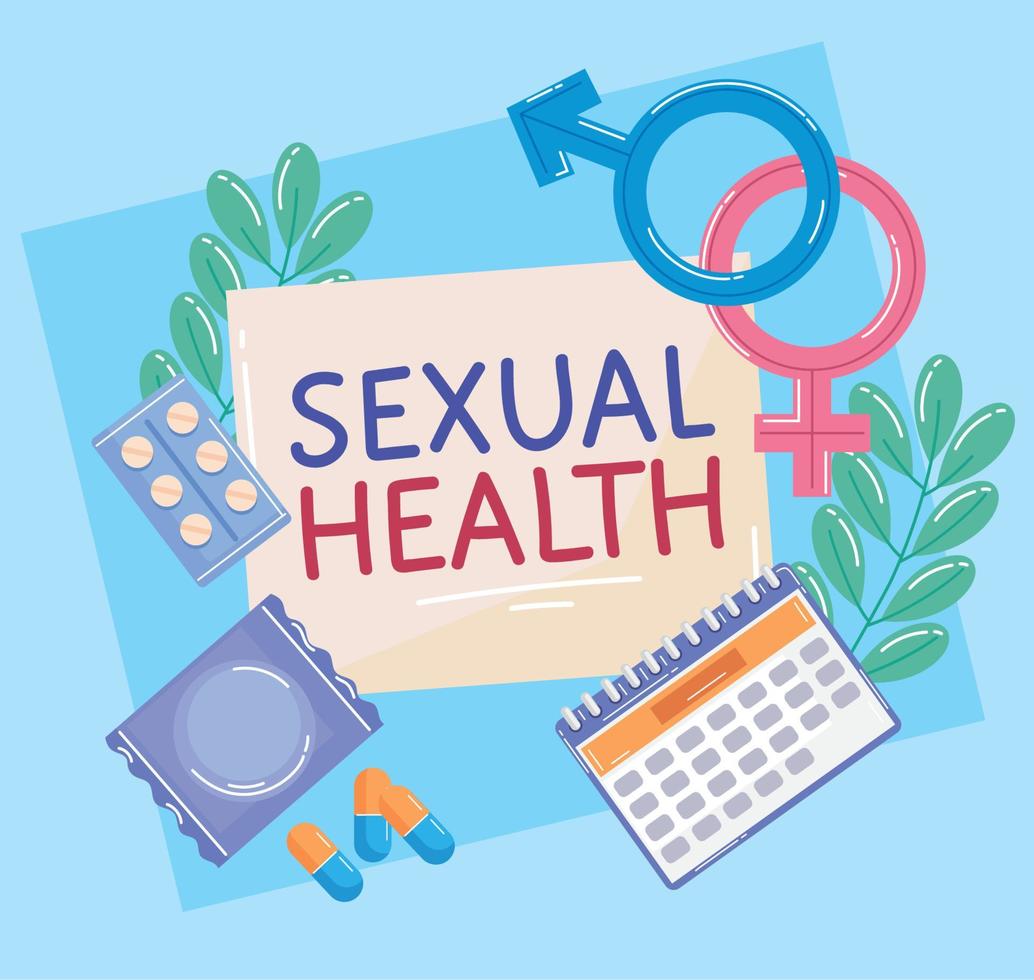Sexual Health Week
Sexual Health Week is nationally observed from the second full Monday to Sunday in September. During this week, raise awareness and promote resources through de-stigmatizing and empowering conversations about sexual health. Beginning a conversation about sexuality early, and continuing that conversation as your child grows, is the best sex education strategy. You do not have to explain everything at once. Remember that sex education is a continuing process. You might start by answering your child’s questions. Or you can ask them questions to find out exactly what they want to know and why. Often, younger children tend to be more interested in pregnancy and babies, rather than the act of sex. Wear a blue and green awareness pin to raise awareness about Sexual Health Week. The pins are available in a personalized and non-personalized version.
What is Sexual Health Week?
Sexual Health Week is a yearly awareness week dedicated to promoting and highlighting the importance of sexual health. Sexual Health Week advocates for individuals to feel empowered to access contraception, testing, and treatment. It offers a holistic perspective on sexual health. It stresses the importance of knowledge, resources, and support in helping individuals make informed decisions. And, it also helps them to stay safe.
Being safe means feeling empowered to access contraception, testing and treatment. It means understanding consent, healthy relationships and pleasure. It also means providing relationships and sex education that give people the tools to navigate the world safely. This means both online and offline. And delivering safe, accessible sexual health services, wherever people need them.
Sexual Health
Sexual health encompasses much more than just STIs and fertility. Enhancing sexual pleasure can be multifaceted including physical, emotional, and psychological dimensions. Communication is key when it comes to sex. Having an open dialogue about desires, boundaries, and fantasies can foster trust. It can also lead to a more fulfilling sexual experience with your partner.
Psychologically, sexual pleasure can be impacted by a number of factors including anxiety and stress. High-stress levels can impact libido and sexual function. Relaxation techniques, therapy, or lifestyle changes can help manage stress. Being present in the moment can also enhance the sensations and emotional connection during intimacy.
What Children Should Learn and When – Learn More During Sexual Health Week
These are some of the things that children should be able to understand about sexuality and reproduction at different stages (this is not a complete list):
Beginning a conversation about sexuality early and continuing that conversation as the child grows is the best sex education strategy. It lets parents avoid giving one big talk when the child reaches adolescence, when they may think they already have the information and won’t be receptive. When talking to kids about sex, it’s important to explain things in a way they can understand. This is based on their age and level of development.
Every child is different. Below is a rough guide about what children should be able to understand about sexuality and reproduction. The information is divided into different stages of life.
Toddlers: 13 to 24 months
- Toddlers should be able to name all the body parts including the genitals. Using the correct names for body parts will allow them to better communicate any health issues, injuries or sexual abuse. It also helps them understand that these parts are as normal as any others, which promotes self-confidence and a positive body image.
- Most two-year-olds know the difference between male and female, and can usually figure out if a person is male or female. They should have a general understanding that a person’s gender identity is not determined by their genitals and that gender can be expressed in different ways. Caregivers can help by not connecting sexual biology to gender (e.g., say “people with penises” or “people with vaginas”).
- Toddlers should know that their body is private. It is normal for toddlers to explore their bodies, which includes touching their genitals. However, they should understand when and where it is appropriate to do so.
Preschoolers: Two to four years old
- Most preschoolers are able to understand the very basics of reproduction: the sperm and the egg join, and the baby grows in the uterus. Depending on their level of understanding and interest, you might tell children about their birth story and let them know that this isn’t the only way families are made. Do not think you have to cover everything at once. Younger kids are interested in pregnancy and babies, rather than the act of sex.
- Children should understand their body is their own and no one can touch their body without their permission. They should know other people can touch them in some ways but not other ways. And that no one should be asking to touch their genitals except for their parents or health-care providers. If they know what is appropriate and what is not, they will be more likely to tell you if they experience sexual abuse.
- By this age, children should also learn to ask before they touch someone else (e.g., hugging, tickling) and should start to learn about boundaries (e.g., understanding that when someone takes a step away, your child should respect that person’s signal for space).
- Teach children about privacy around body issues. For example, they should know when it’s appropriate to be naked.
- Children should also learn more about other body parts and body functions. Some children of this age think that girls only have one opening for stool and urine, and many children believe that babies grow in tummies, the same place their food goes.
School-age children: Five to eight years old
- Children should have a basic understanding that some people are heterosexual, homosexual or bisexual, and that there is a range of gender expression; gender is not determined by a person’s genitals. They should also know what the role of sexuality is in relationships.
- Children should know about the basic social conventions of privacy, nudity, and respect for others in relationships. Most children have begun to explore their bodies by this age. They should understand that while it is normal, it is something that should be done in private.
- Teach children how to use the computer and mobile devices safely. Children toward this age span should start learning about privacy, nudity, and respect for others in the digital context. They should be aware of rules for talking to strangers and sharing photos online and what to do if they come across something that makes them uncomfortable.
- Children should be taught the basics about puberty toward the end of this age span, as a number of children will experience some pubertal development before age 10. They should not only learn about the changes they will experience, but about other bodies, too. In addition, boys and girls should not have separate lessons. Children should also know about the importance of hygiene and self-care in puberty. Having these discussions early will prepare them for the changes that happen during puberty and will reassure them that these changes are normal and healthy.
- Children’s understanding of human reproduction should continue. This may include the role of sexual intercourse, but they should also know that there are other means of reproduction. This information could be incorporated into discussions of puberty.
Pre-teens: Nine to 12 years old
- In addition to reinforcing all the things above that they have already learned, pre-teens should be taught about safer sex and contraception and should have basic information about pregnancy and sexually transmitted infections (STIs). They should know that being a teenager does not mean they have to be sexually active.
- Pre-teens should understand what makes a positive relationship and what makes for a bad one.
- Pre-teens should have increased knowledge of internet safety, including bullying and sexting. They should know the risks of sharing nude or sexually explicit photos of themselves or their peers.
- Pre-teens should also understand how the media influences the way people view their bodies and should be able to think critically about how sexuality is portrayed in the media. This means being able to judge whether depictions of sex and sexuality are true or false, realistic or not, and whether they are positive or negative.
Teenagers: 13 to 18 years old
- Teens should receive more detailed information about menstruation and nocturnal emissions (wet dreams) and should know that they are normal and healthy. They should also know more about pregnancy and STIs and about different contraception options and how to use them to practice safer sex.
- Learning how to practice safer sex also means learning how alcohol and drugs impact judgment.
- Teens should continue learning the difference between a healthy relationship and an unhealthy relationship. This includes learning about pressures and dating violence and understanding what consent means in sexual relationships. Teens should be equipped with negotiation and refusal skills and methods for ending a relationship.
- Teens are generally very private people. However, if parents have spoken to their child early about sex, it increases the chance that teens will approach parents when difficult or dangerous things come up later or when they have questions or concerns about their changing bodies and identities.



